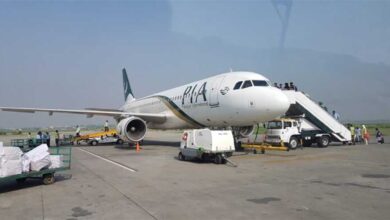Pakistan has long been recognized as a land of rich history, cultural diversity, and intellectual traditions. Over the past few decades, the country has increasingly invested in higher education, making it an attractive destination for students from around the world, particularly from member states of the Organization of Islamic Cooperation (OIC). With a large network of universities, world-class faculty, and affordable educational opportunities, Pakistan is positioning itself as a hub for higher learning in Asia.
Pakistan today boasts 274 Higher Education Commission (HEC)-recognized universities and degree-awarding institutes. Among these, more than 140 universities belong to the public sector, while the rest are part of the dynamic and expanding private sector. Collectively, these institutions cater to millions of students in disciplines ranging from medicine, engineering, natural sciences, and social sciences, to emerging fields such as artificial intelligence, data science, and biotechnology. What makes Pakistan’s higher education sector more prominent globally is the recognition of several of its universities in leading international ranking systems such as QS World University Rankings and Times Higher Education (THE) Rankings. Some of Pakistan’s top-ranked universities are now on par with respected institutions across Asia and beyond. Importantly, many of these universities are welcoming international students, offering degree programs as well as short-term research and training opportunities.
One of the strongest incentives for international students to choose Pakistan is the availability of scholarships and affordability. The federal government , individual universities, and bilateral programs offer a range of scholarships for students from abroad. In particular, the OIC Ministerial Standing Committee on Scientific and Technological Cooperation (COMSTECH) has played a vital role in promoting student mobility within the Muslim world. Through its initiatives, COMSTECH has facilitated the placement of students, especially from OIC member countries, into Pakistan’s top universities. These students are enrolled in both short-term training programs and full-fledged degree programs, providing them access to quality education while also strengthening academic cooperation among Muslim nations. This approach reflects Pakistan’s broader vision of contributing to the knowledge economy of the Islamic world by sharing its expertise and educational infrastructure.
The momentum to make Pakistan a more welcoming destination for international students received a significant push during the 4th Rectors Conference, organized by the Association of Private Sector Universities of Pakistan (APSUP) in collaboration with OIC-COMSTECH. The conference brought together university leaders, policymakers, and stakeholders from across Pakistan and abroad. One of the most important recommendations of this gathering was the introduction of a “one-window operation” to facilitate international students. The idea is to streamline the admission process, visa facilitation, scholarships, and student services under a single platform. This would reduce bureaucratic hurdles and make it easier for students from other countries to pursue higher education in Pakistan with confidence and convenience.
As a follow-up to the conference, Pakistan Education Portal has been recently introduced as a major step towards realizing the vision of a one-window operation for international students. This digital platform has already been joined by 50 leading Pakistani universities, with many more in the process of integration. The portal serves as a comprehensive gateway for prospective students, providing information about academic programs, admission procedures, scholarships, and student life in Pakistan. Consolidating resources, it makes it easier for students and parents worldwide to explore opportunities in Pakistan’s universities. Moreover, the portal enhances transparency and ensures accessibility, which are essential factors for building trust among international applicants. The establishment of the Pakistan Education Portal is not just a technological upgrade but a strategic milestone in positioning Pakistan as a serious contender in the global education market.
The importance of attracting international students to Pakistan goes beyond filling classroom seats. It has broader economic, cultural, and academic implications. International students contribute significantly to the economy through tuition fees, accommodation, travel, and other expenditures. Countries like the United States, the United Kingdom, and Australia generate billions of dollars annually from international education. Pakistan, with its affordable education and cost of living, can tap into this global student mobility market to strengthen its economy. Hosting students from diverse backgrounds also creates cultural bridges. International students in Pakistan become ambassadors of Pakistani culture and hospitality when they return home. This people-to-people connection enhances Pakistan’s soft power and fosters goodwill across borders. At the same time, a key metric in global university rankings is internationalization, which includes the number of foreign students and faculty. By increasing international enrollments, Pakistani universities can improve their global standing, attracting even more talent and resources in the long run.
It is worth noting that Pakistan already has a tradition of welcoming foreign students. In the past, many students from countries in Asia, Africa, and the Middle East came to study in Pakistan’s leading universities, particularly in fields like medicine and engineering. Today, those alumni occupy prominent positions in their respective countries, serving as doctors, engineers, researchers, diplomats, and policymakers. Their success stories stand as a testament to the quality of education offered in Pakistan. By revitalizing this tradition and scaling it up with modern tools like the Pakistan Education Portal, the country can re-establish itself as a preferred destination for international students.
Pakistan’s higher education sector is at a turning point. With 274 HEC-recognized universities, an increasing number of institutions listed among globally ranked universities, and a growing ecosystem of scholarships and international collaboration, the foundations are strong. Initiatives like COMSTECH’s student placement programs and the Pakistan Education Portal are crucial steps in making higher education in Pakistan more accessible and globally competitive. By attracting international students, Pakistan will not only gain economically but also enhance cultural exchanges, academic excellence, and its global reputation. The vision is clear: Pakistan is not just educating its youth but also opening its doors to the world, building a future where education serves as a bridge for unity, progress, and development.











